Topic: Grasshopper3D: Data Structures & Design Automation
Date: April 12 – 13, 2025
Time: 15:00 – 19:00 GMT
Format: Online on Zoom
Duration: 2 Sessions (8 Hours)
Registration Deadline: April 11th, 2025
Total Seats: 50 seats
Difficulty: Beginner-Intermediate
Language: English
Certificate: Yes
General Registration: 100 EUR
First 10 Seats: 85 EUR
Join free: with Full Access membership
Fee For Digital Members: 70 EUR (15% discount available only for Digital Members)
Organized By: PAACADEMY
Tutor: Aditya Jain
Recordings: Recordings will be available for all participants afterward indefinitely.
Introduction to Grasshopper3D: Data Structures & Design Automation:
This workshop offers a deep dive into data-driven processes and algorithmic thinking like automation and generative design, allowing architects and engineers to work more creatively, efficiently, and accurately.
We all encounter a series of repetitive tasks at some point in a project’s journey, often across multiple projects. Mastering computational design begins with a clear understanding of data structures.
This workshop will help you understand this through scripting for mini-projects like pavilion design and generative art animations. Learn how to batch export PDFs from Grasshopper. Participants will learn how to build their own custom tools and build logic networks to automate almost anything.
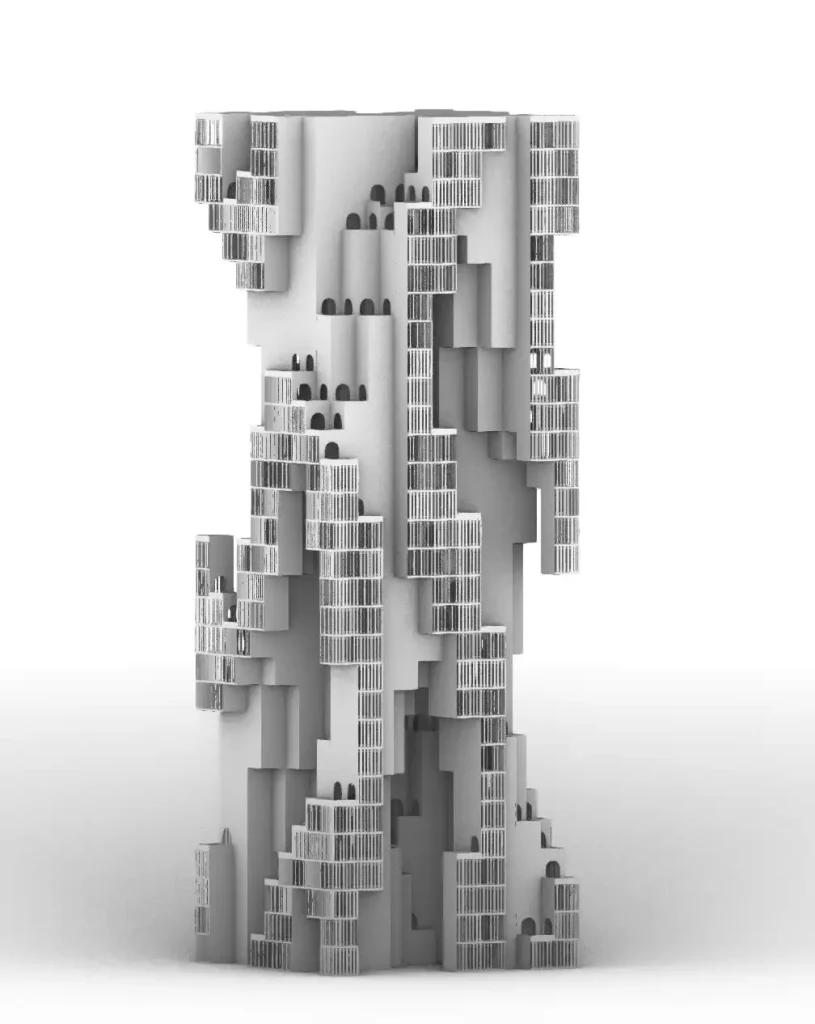
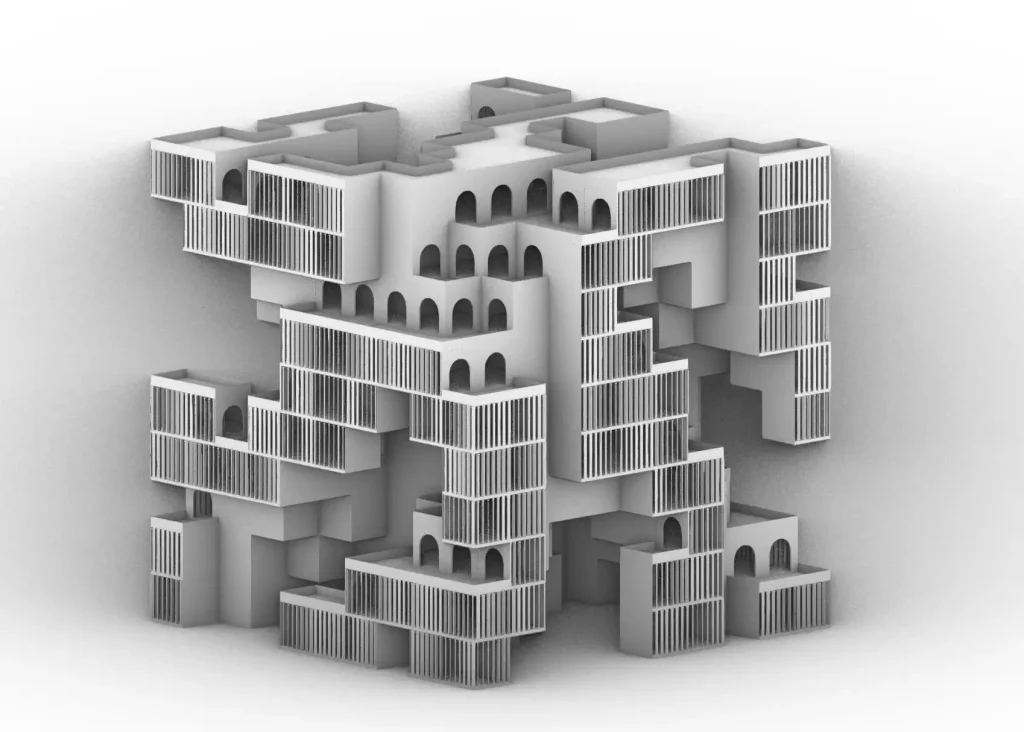
The Scope of Grasshopper3D: Data Structures & Design Automation:
ThiThis workshop isn’t just about learning Grasshopper—it’s about building smarter workflows that help you overcome common roadblocks in computational design. We will build 2 projects, a tower and a pavilion, with the objective of learning concepts related to data structures and layer management besides generative design. We will use HumanUI and Elefront for this.
This workshop will explore methods that can be adapted to different challenges, giving you the tools to automate and optimize your own processes. Exporting PDFs, 100 percent from Grasshopper, will be a helpful workflow that we will cover along the way. To eliminate repetitive tasks, we will learn how to build ghuser components and a custom toolbar and drop them onto the canvas like any other component. A quick 5-10-minute AI rendering workflow will help you generate quality iterations systematically.
This workshop is interactive, hands-on, and practical. Covering:
- Poll-Based Decisions – At key moments, we’ll put design choices to a vote. For example, when creating a custom Grasshopper component, you’ll choose between different approaches, shaping the direction we take.
- Quick Tips & Tricks – Throughout the session, we’ll pause for short knowledge drops—practical insights you can apply right away.
- Open Conversations – Dedicated Q&A time ensures we’re always addressing your real-world questions and challenges.
In this workshop you’ll get to apply what you learn. By the end of the workshop, you’ll have a project that integrates key concepts, plus time for troubleshooting and refinement, so you walk away with solid working scripts.
To tie it all together, Aditya will share a Branch Technology facade project that showcases automation in action. You’ll also get a behind-the-scenes look at their production process through a short digital tour, showing how these ideas translate into real-world fabrication.
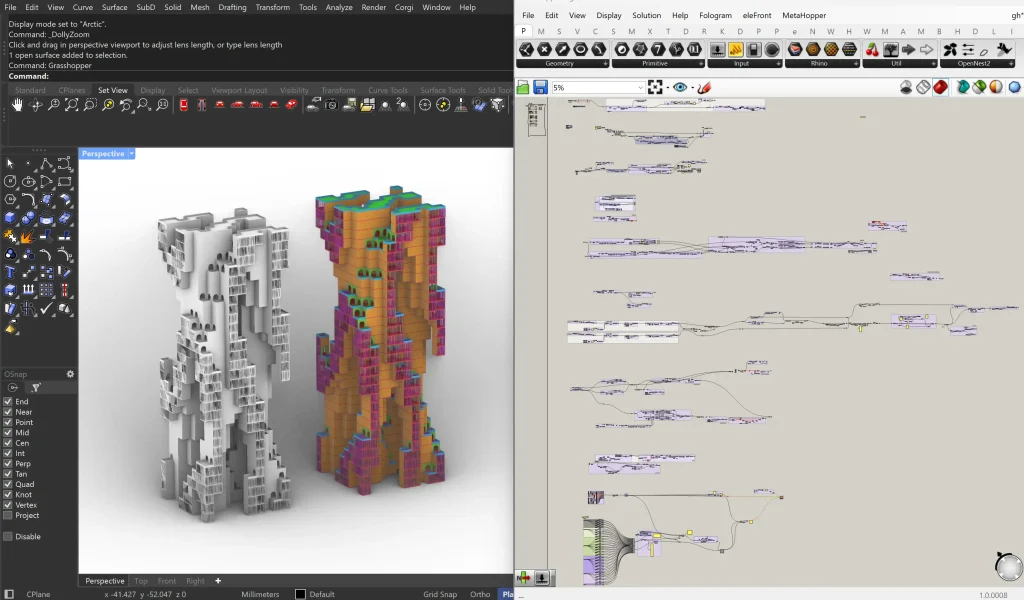
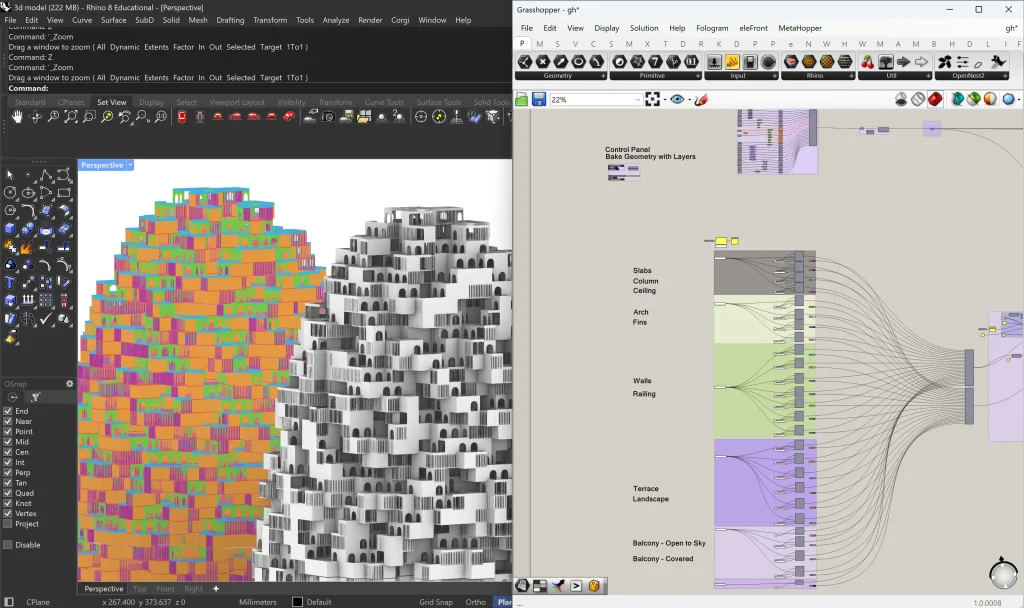
Key Learning Topics:
We’ll work through three core exercises that build a strong foundation in automation and data structures:
- Creating Custom Grasshopper Components – Develop reusable tools to streamline repetitive tasks.
- Mastering Data Structures – Learn how to organize lists, trees, and patterns to create flexible workflows.
- Building Automation Networks – Explore real examples like facade panelization, automated documentation, and form finding.
Program:
Day 1:
Data Structure Concepts
- This presentation focuses on understanding data, managing it, and manipulating it to build flexible workflows. We will build examples outside the world of design to clearly understand the fundamentals before we dive deep.
Generative Design Animation
- We will look at built projects and understand how they can be recreated with a focus on understanding tree structures and animating them for presentation showcases.
Computational Design at Branch Technology: Real-World Applications
- Aditya will show some Branch Technology projects showcasing automation in action.
Day 2
Layer Structure Management with Elefront and Fologram
- Add attributes, dimensions, and hatches to your geometry; filter, sort, and query data from Rhino models; algorithmically define and modify layers.
Building Custom Tools
- Create custom components that can be easily accessed and reused within your Grasshopper workflow, similar to other native Grasshopper components.
PDF Automation
- Generate drawings with dimensions, hatch, and line weights and export bulk PDFs with the click of a button.
Q&A, Challenges & Feedback
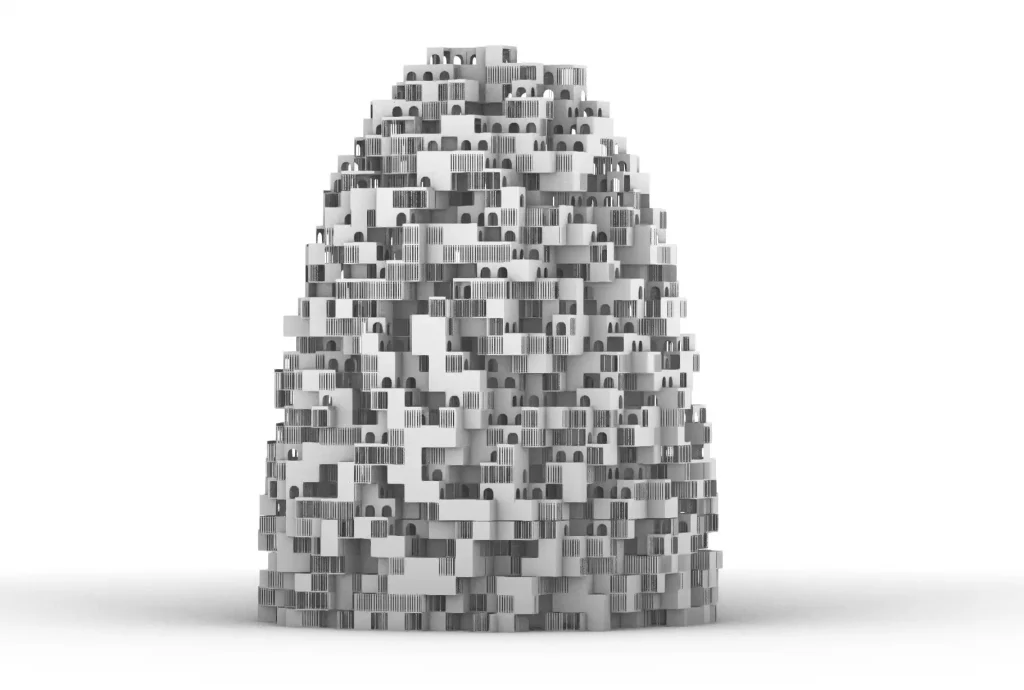
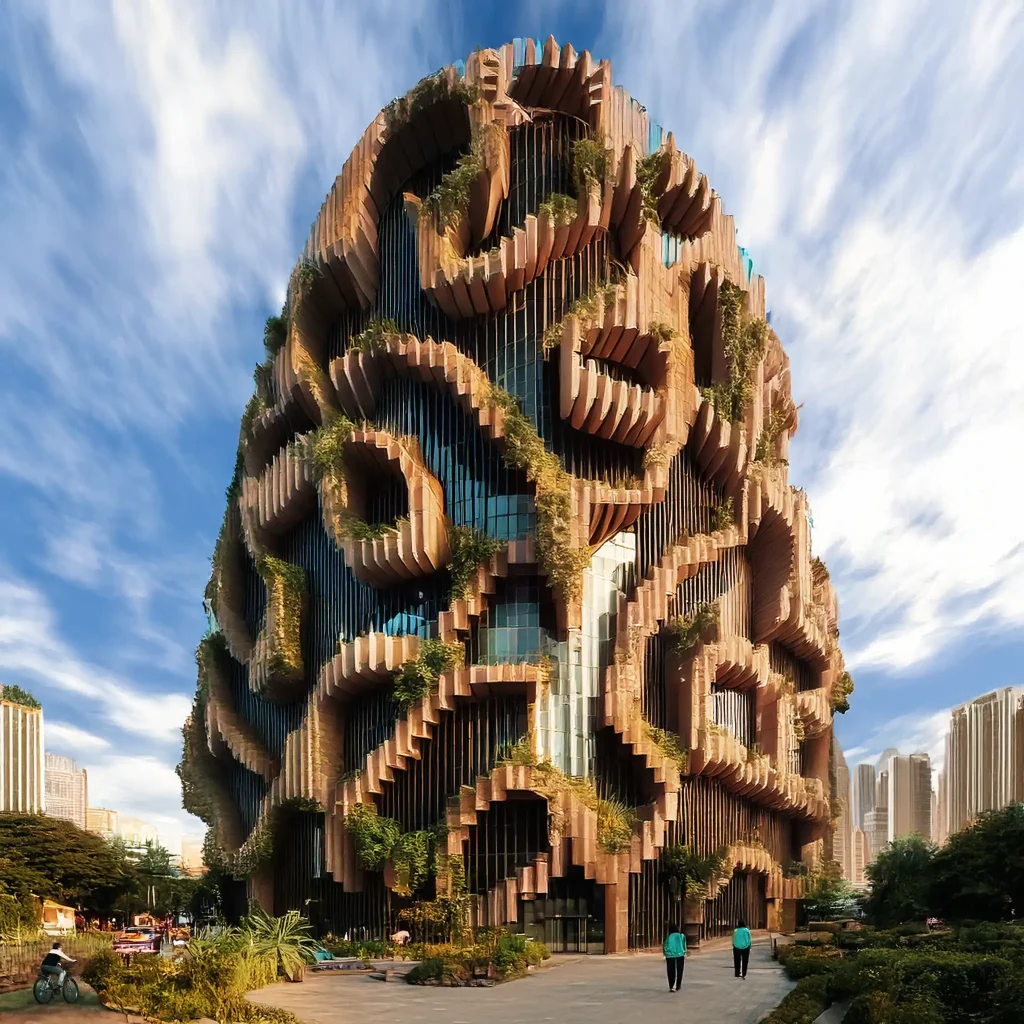
Software &
Workshop Notes:
- A basic understanding of Grasshopper is a must.
- Please ensure you have all the software installed before the workshop starts. Software installation is NOT a part of the workshop.
Instructor:
Aditya Jain

Aditya Jain is an Architect, Computational Designer, and Generative Artist, passionate about using algorithmic methods and digital fabrication technologies to address various social, cultural, and environmental issues. His work focuses on combining innovation with sustainable design practices, particularly through the use of 3D printing and logic-based design techniques. Aditya earned his MS in Architecture: Design Computation from Georgia Tech, where he developed his skills in automating tasks, optimizing workflows, and analyzing building systems within the AEC industry. His research at Georgia Tech explored the integration of computational design approaches with rural architecture and additive manufacturing (ceramics). As a Graduate Teaching Assistant, Aditya helped guide students in digital design, fostering both technical proficiency and creative thinking.
Currently, Aditya is a Digital Design Specialist at Branch Technology, where he specializes in advancing design automation and developing innovative solutions that streamline processes involving robotic fabrication and digital manufacturing. Before Branch, he worked as an Associate Architect and Designer at NUDES in Mumbai. There, he contributed to a variety of projects, including the Bookworm Pavilion, Cardboard Cafe, and the Ismaili Jamatkhana, as well as some winning competition entries and research initiatives. His approach to design emphasized bottom-up construction processes and scalability, with a strong commitment to sustainability.
He has also tutored and mentored on several educational platforms, inspiring the next generation of designers in computational design and generative art. Aditya’s career has been defined by a continuous focus on innovation, creating both digital and physical projects using advanced design and fabrication techniques.
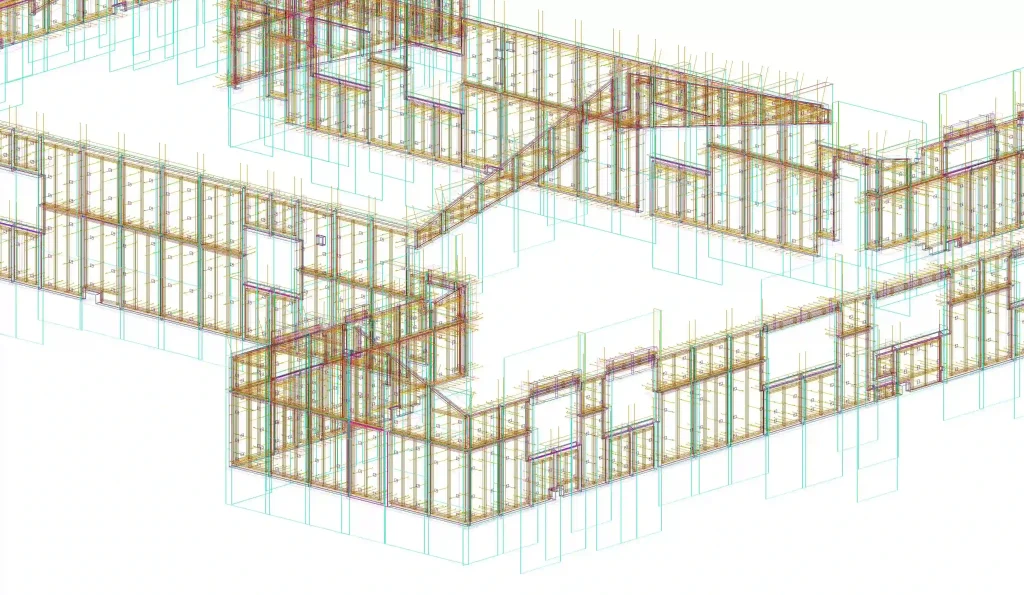
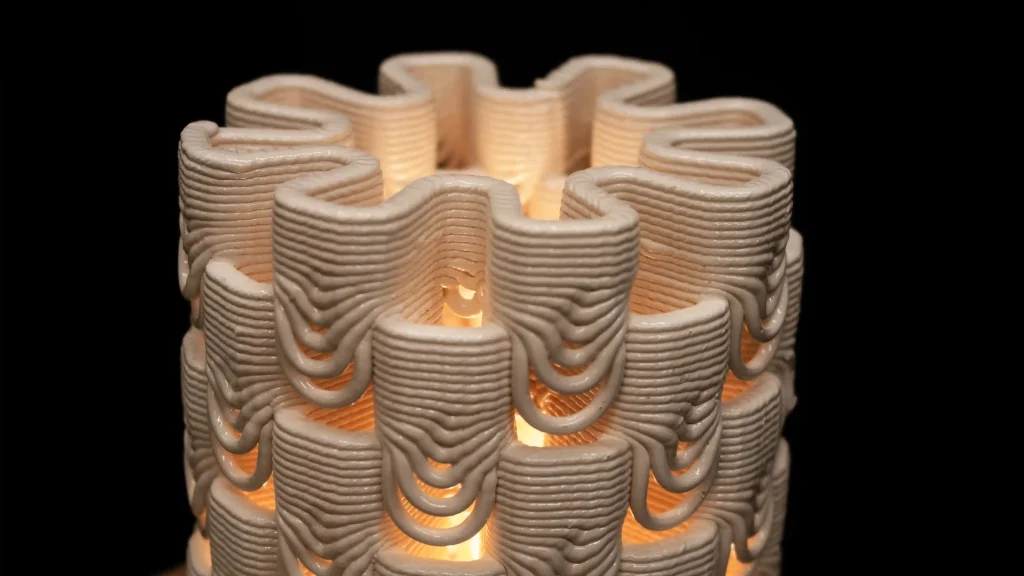
Important Notes:
- The “Grasshopper3D: Data Structures & Design Automation” Studio workshop by PAACADEMY will start at 15:00 (GMT) on Saturday, April 12th, 2025.
- Total sessions: 2 Sessions
- The teaching duration per session will be 4 hours.
- Students will have time for a break between teaching hours.
- Each session and the entire studio will be recorded, and videos will be available for participants just a day after the class for unlimited time.
- PAACADEMY will provide a certificate of attendance.
- The studio has limited seats. Tickets are non-transferable & non-refundable. Please read carefully before you register.
Topic: Grasshopper3D: Data Structures & Design Automation
Date: April 12 – 13, 2025
Time: 15:00 – 19:00 GMT
Format: Online on Zoom
Duration: 2 Sessions (8 Hours)
Registration Deadline: April 11th, 2025
Total Seats: 50 seats
Difficulty: Beginner-Intermediate
Language: English
Certificate: Yes
General Registration: 100 EUR
First 10 Seats: 85 EUR
Join free: with Full Access membership
Fee For Digital Members: 70 EUR (15% discount available only for Digital Members)
Organized By: PAACADEMY
Tutor: Aditya Jain
Recordings: Recordings will be available for all participants afterward indefinitely.
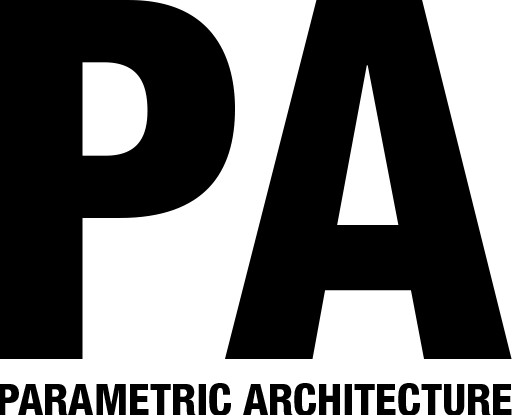


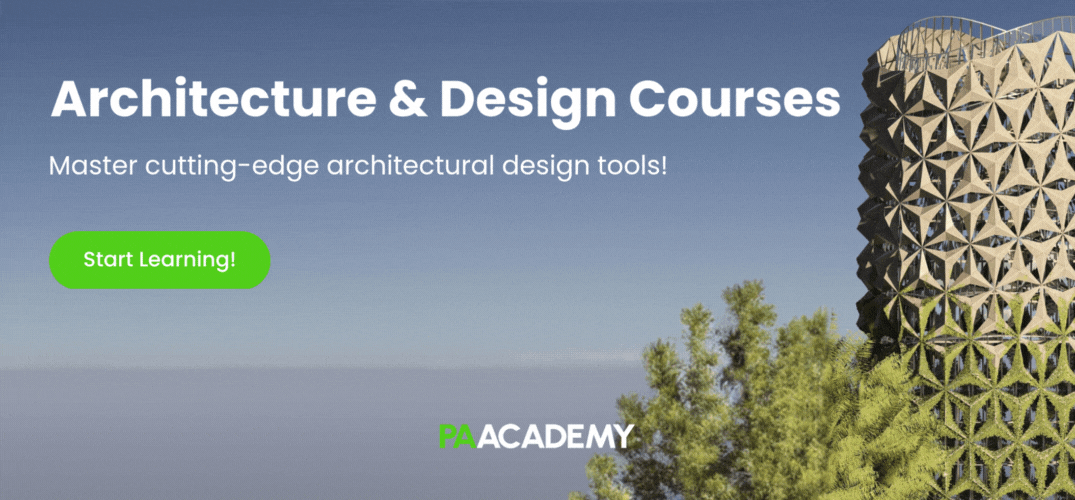

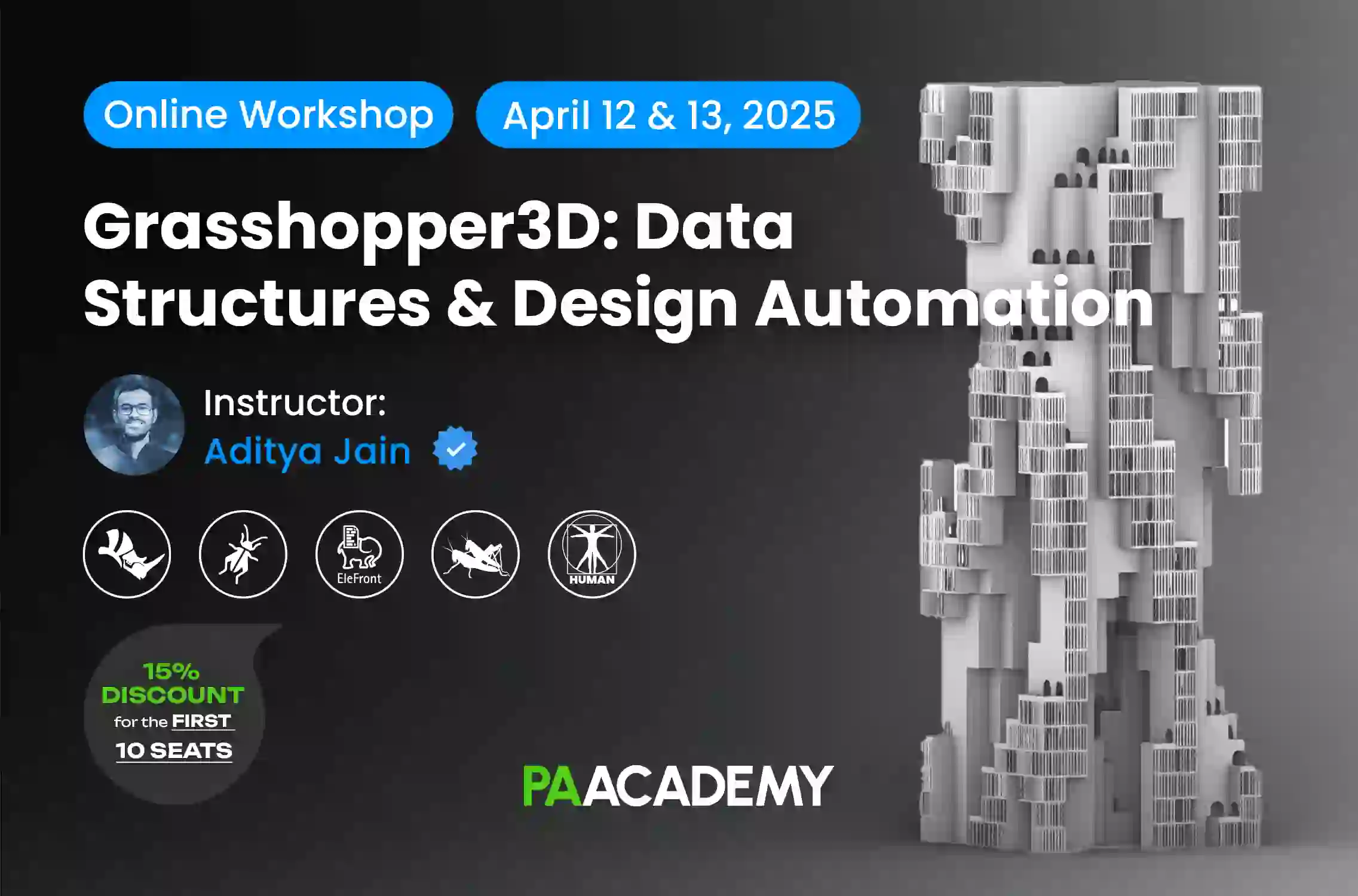
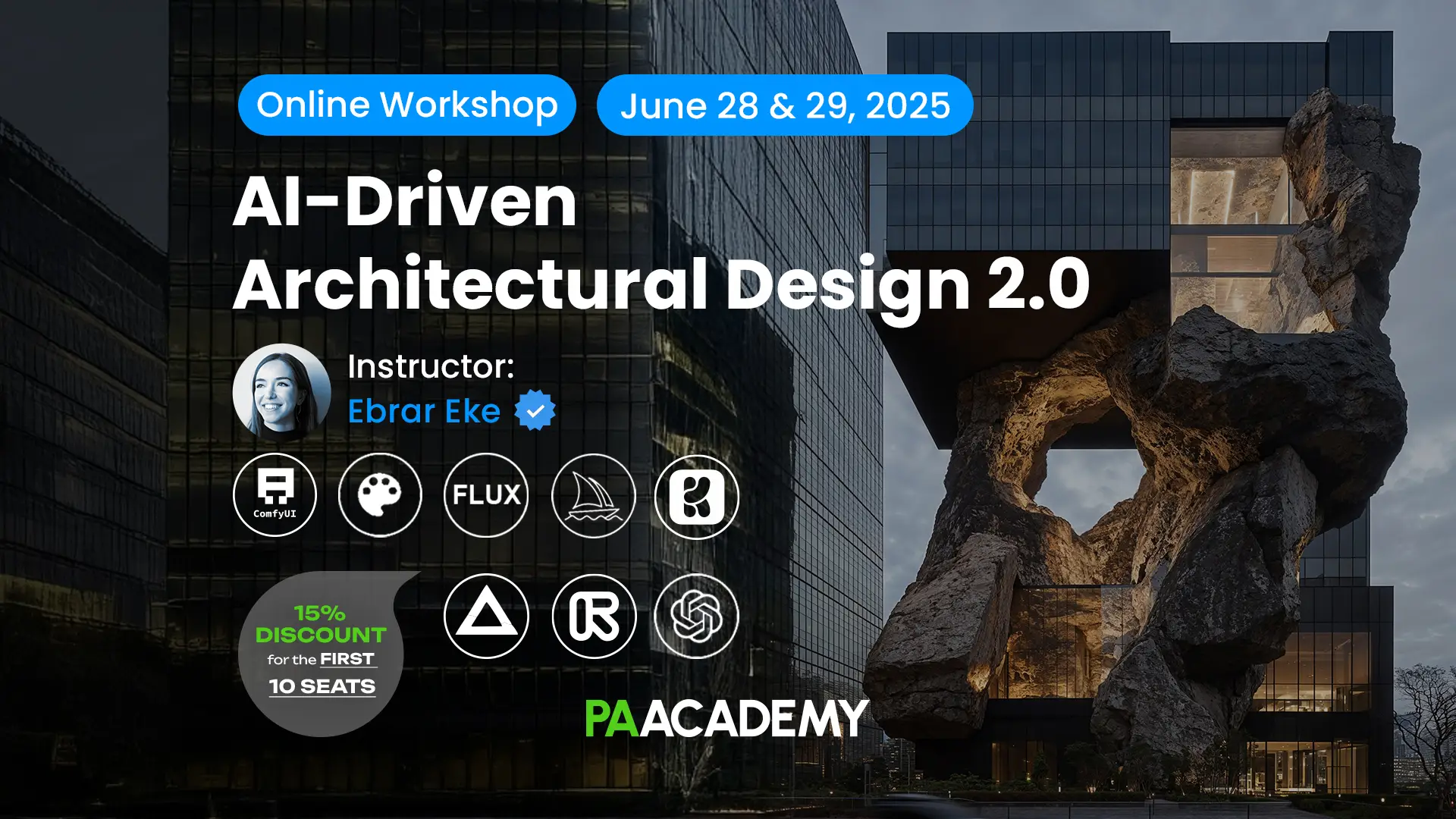
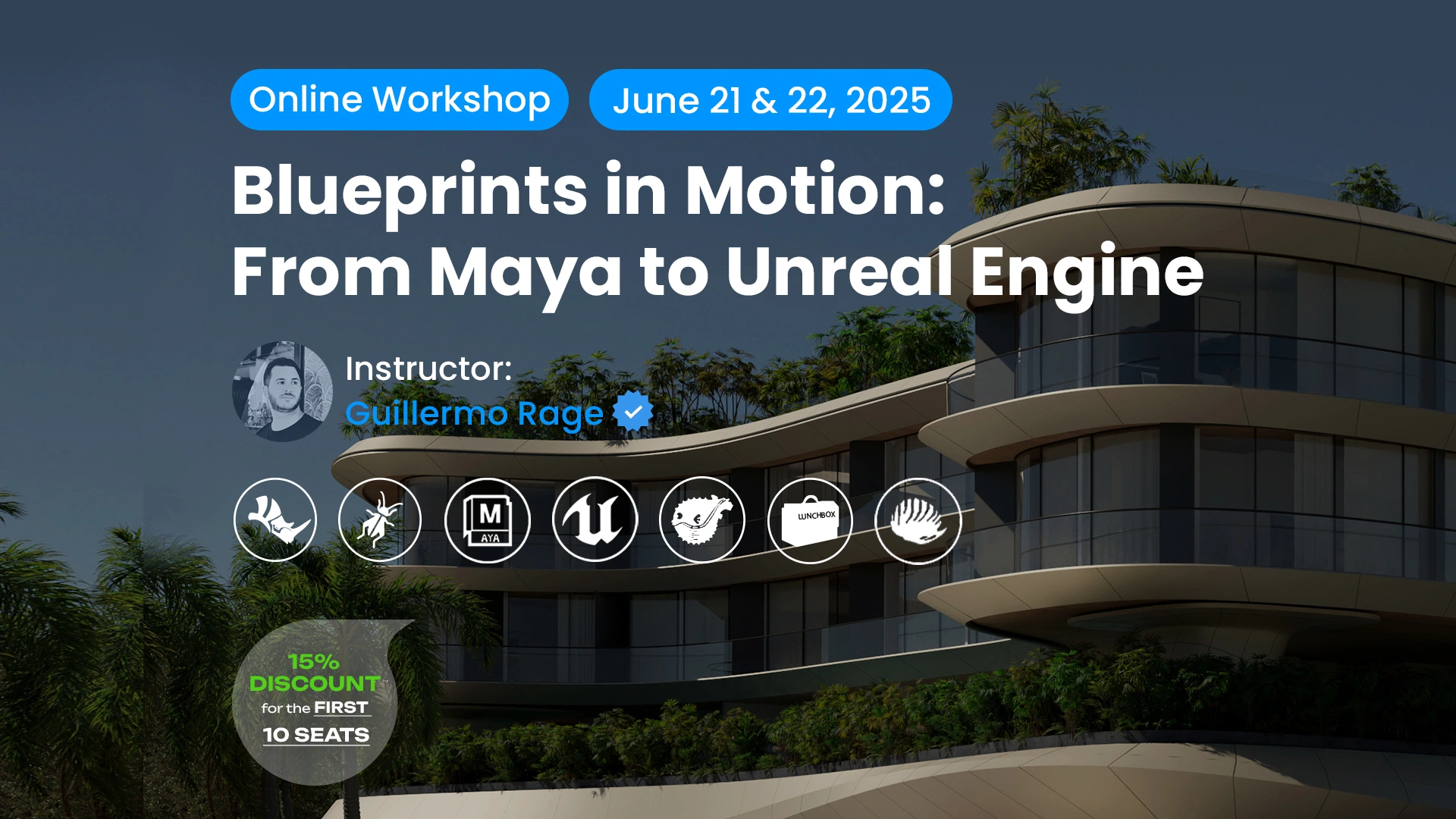
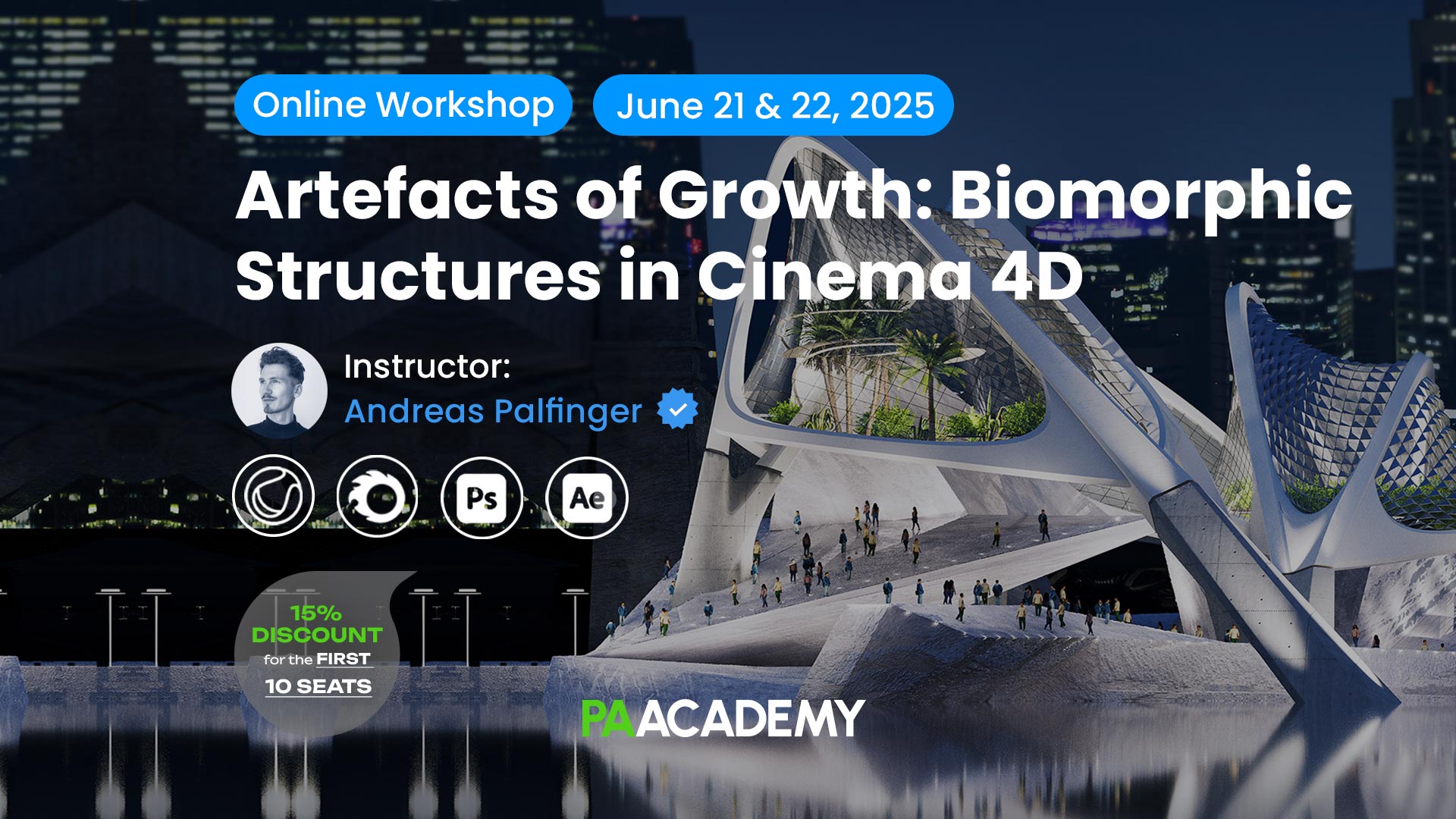


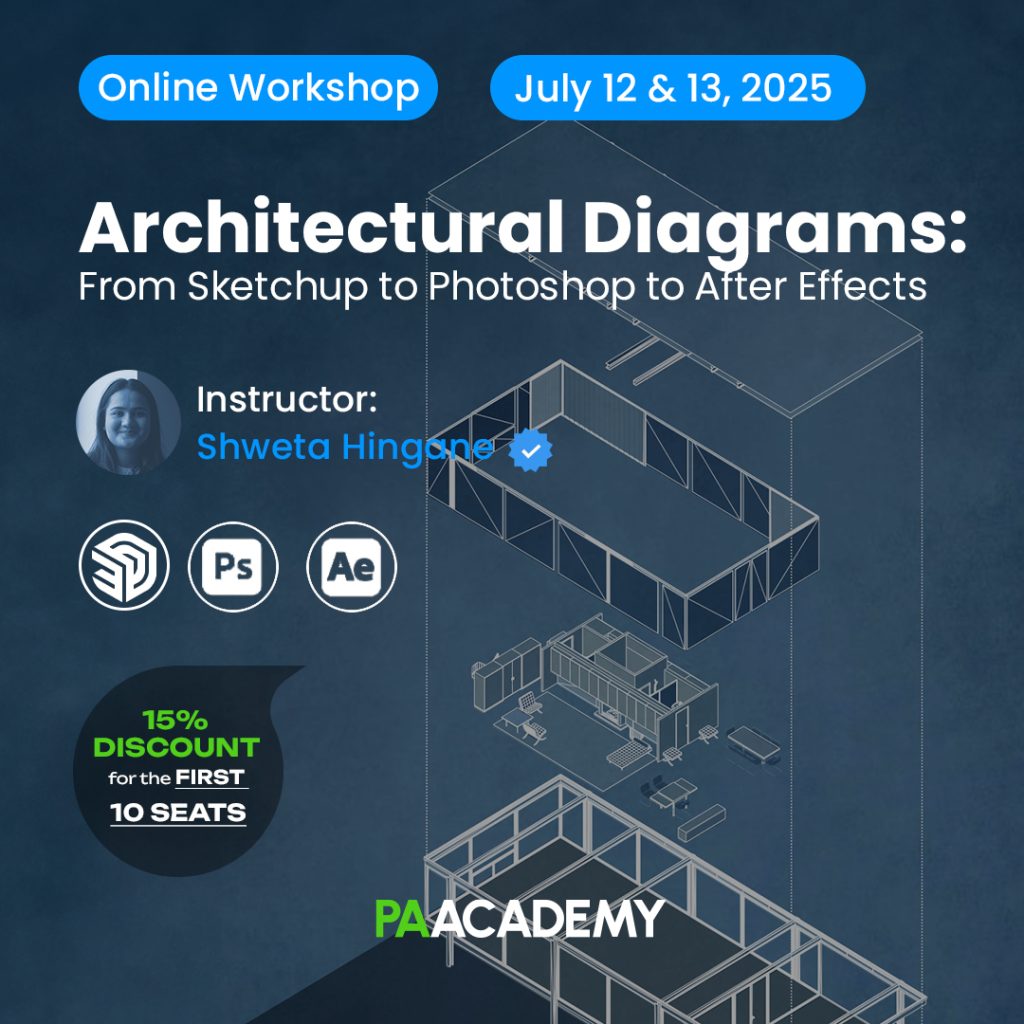
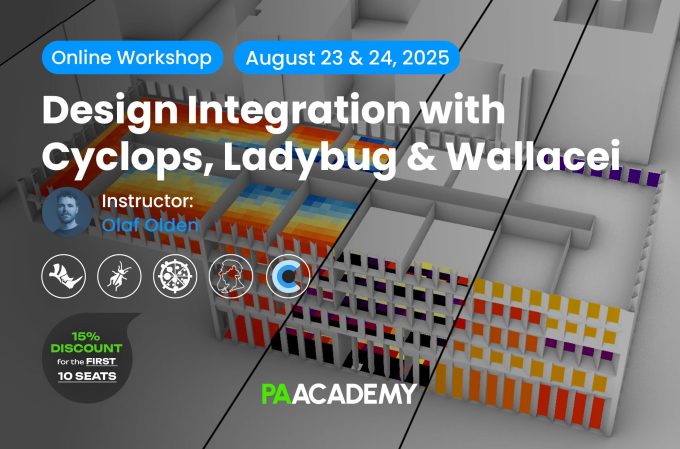
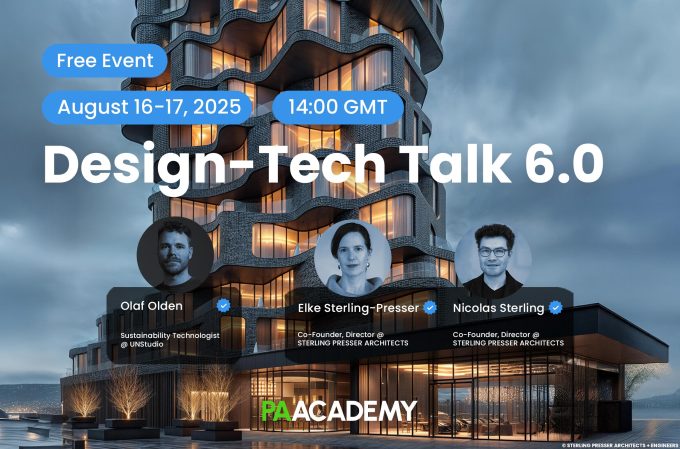
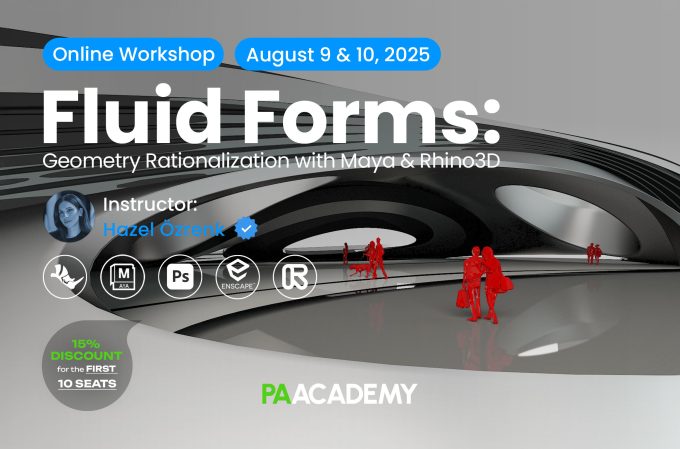
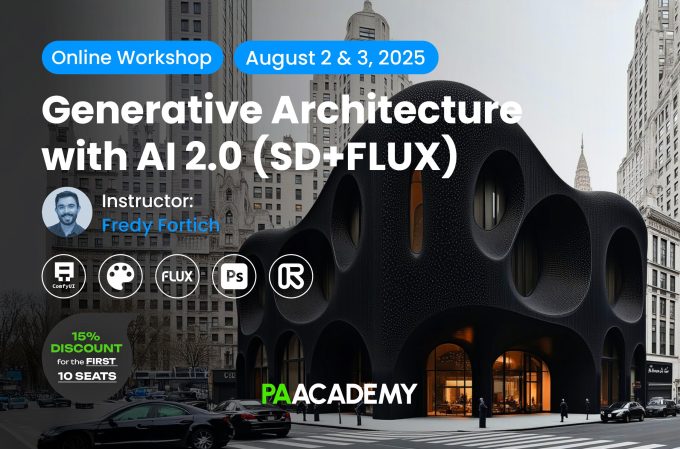
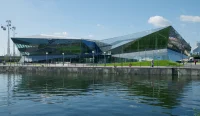
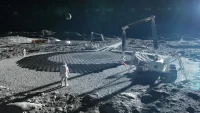
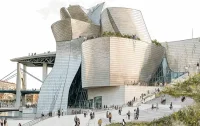

Leave a comment